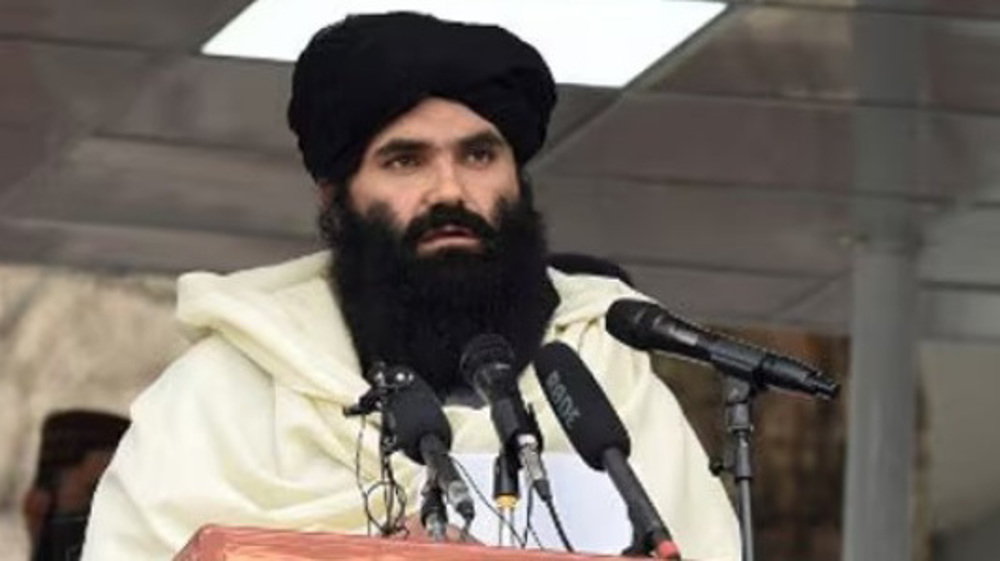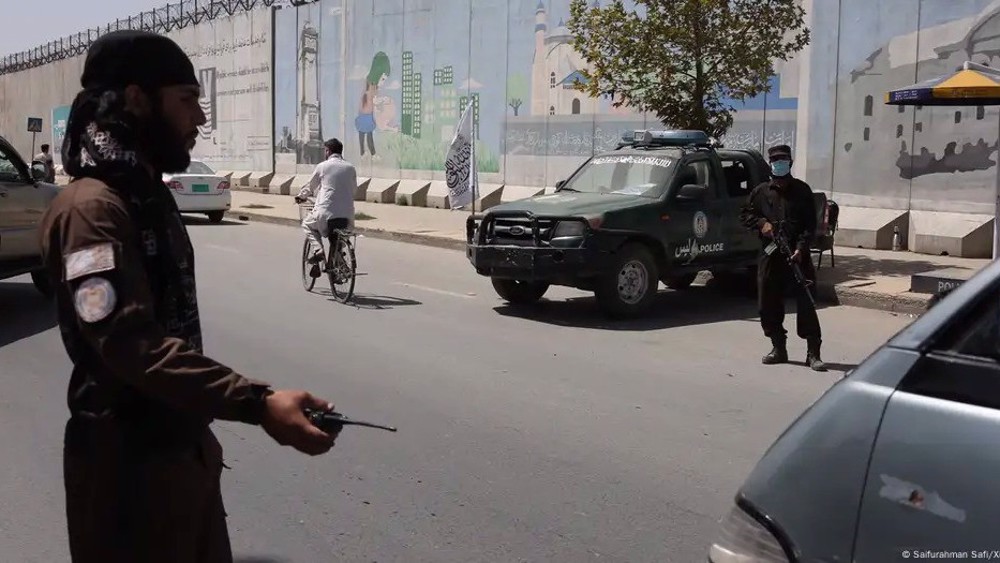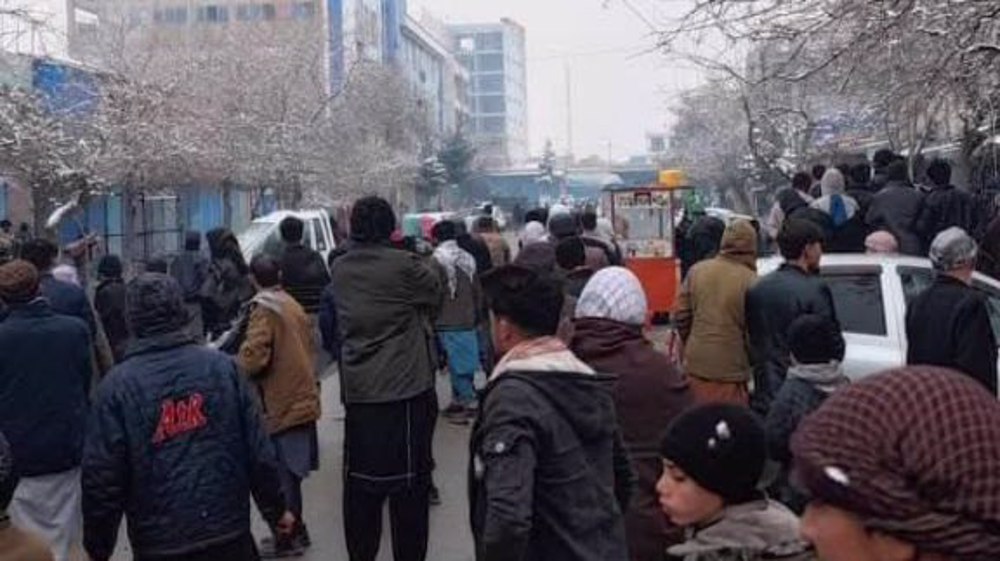Afghan police confiscate tonnes of bomb-making chemical in Kabul
Afghan police have confiscated a massive amount of sodium nitrate in the capital, Kabul, a chemical compound used in the making of car bombs and improvised explosive devices.
Afghan Interior Ministry spokesman Tariq Arian said the chemical, weighing four tonnes, was seized from a truck in Kabul on Sunday, adding that the driver has been arrested and investigations are under way.
Sodium nitrate, which is also used in fertilizers and preservatives, has been banned in Afghanistan for years.
The government has not attributed the responsibility for the hazardous stash — one of the largest such seizures in the country over the years — to any militant groups, but the Taliban, Daesh and other terrorist outfits have been using the chemical for their bombing attacks in and around the capital for the past nearly two decades since the US-led invasion of Afghanistan.
The Afghan National Directorate of Security (NDS) announced on the same day that it had detained seven members of the Daesh Takfiri terrorist group in the eastern city of Jalalabad, including a man believed to be in charge of planning urban area bombings.
The NDS said in a statement that the group planned to target a gathering of Afghan security forces or tribal elders in the eastern province of Nangarhar, where Daesh has perpetrated a number of attacks this year.
Suicide bomber vests, weapons and explosives were also seized from the detained members of the Takfiri terrorist outfit.
Since September 12, representatives of the central government in Kabul and those of Taliban have been engaged in peace talks in the Qatari capital of Doha, following months of delay over a contentious prisoner swap between the two sides.
Earlier this month, Taliban spokesman Mohammad Naeem claimed the group had decreased the level of violence with the start of the first round of intra-Afghan talks.
The peace talks come following a deal between the Taliban and the United States signed in February.
Under the deal with Washington, the Taliban agreed to halt their attacks on US-led foreign forces in return for the US pull-out of its troops from Afghanistan and a prisoner swap with the government.
Kabul was a party neither to the negotiations nor to the deal, but it has been acting in accordance with its terms, including by agreeing to free the Taliban prisoners.
In all, Kabul released 5,000 prisoners demanded by the Taliban.
According to official data, bombings and other assaults by the Taliban have increased by 70 percent since the militant group signed the February deal.
The US invaded the Asian country and toppled the Taliban-run government in 2001 under the pretext of fighting terrorism following the September 11 attacks in New York.

Taliban says US has lifted $10 million reward for information on deputy chief Haqqani

Deadly bombing attack targets Taliban ministry building in Kabul

Daesh claims deadly bombing attack in northern Afghanistan
Tel Aviv flights permanently suspended: Virgin Atlantic
Pakistan says India military incursion ‘imminent’ as crisis deepens over Kashmir attack
US ‘brutality’ would not cover up its military failure in Yemen: Ansarullah spox
Israel using Gaza aid as ‘weapon of war’: Palestinian envoy to ICJ
VIDEO | Gazans suffer famine, deprived of basic goods
Putin orders surprise 3-day Ukraine war ceasefire in May
The path to Palestinian liberation from occupation begins with Mahmoud Abbas’ ouster
Pezeshkian visits Baku as Iran, Azerbaijan look to strengthen ties









 This makes it easy to access the Press TV website
This makes it easy to access the Press TV website